Navigating changes in your medication can sometimes feel overwhelming, but understanding the process can make it a lot easier. Whether it's a new prescription, a dosage adjustment, or discontinuation of a medication, clear communication is key. In this article, we'll provide you with a helpful letter template to inform you or your loved ones about these important changes in a simple and approachable way. So, let's dive in and explore how you can effectively communicate your medication updates!
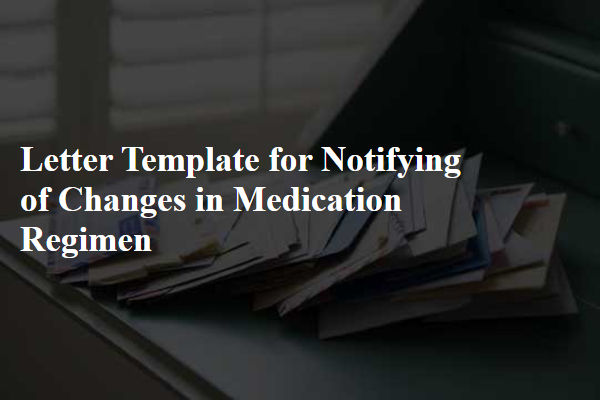
Patient Identification and Contact Information
Changes in medication regimens require careful communication to ensure patient safety and compliance. Patients may experience various side effects depending on the drugs involved, such as increased blood pressure from corticosteroids or drowsiness from sedatives. Notifying patients, particularly those with chronic conditions like hypertension or diabetes, is crucial to avoid complications. It's essential to include specific patient identification details, such as full name, date of birth, and medical record number. Contact information for the healthcare provider or pharmacist is vital for any questions or clarifications regarding the new regimen. Both the prescribed medication name and dosage should be clearly stated to ensure the patient understands the changes to their treatment plan.
Clear Explanation of Medication Changes
Changes in a medication regimen can significantly impact patient health outcomes and adherence to treatment. For example, if a patient transitions from a traditional antidepressant, such as Fluoxetine (Prozac) to a newer agent like Duloxetine (Cymbalta), clear explanations regarding dosage adjustments, potential side effects, and the timeline for monitoring effectiveness are crucial. Additionally, healthcare providers should detail the reasons for this change, perhaps due to emerging research or observed side effects in previous treatments. Patients should be informed about follow-up appointments to assess the efficacy of the new medication, scheduled within four to six weeks of starting the new regimen. Ensuring patients understand these changes can help alleviate anxiety and set realistic expectations about the therapy's outcomes, thereby promoting better medication adherence and overall health management.
Purpose and Benefits of Changes
Notifying patients about changes in their medication regimen is essential for ensuring their safety and improving health outcomes. Clear communication enhances patient understanding and promotes adherence to new prescriptions. When patients are informed about the purpose of changes, such as reducing side effects or improving efficacy, they are more likely to trust and comply with the new treatment plan. For instance, switching from a traditional antidepressant to a selective serotonin reuptake inhibitor (SSRI) can provide better management of symptoms with fewer adverse effects. Additionally, educating patients on monitoring potential interactions, like those between anticoagulants and over-the-counter pain relievers, can prevent complications. This proactive approach fosters a collaborative relationship between healthcare providers and patients, ultimately leading to better management of medical conditions.
Instructions for Medication Administration
Medication regimen changes can significantly impact patient health and safety, especially in chronic conditions like diabetes (where precise blood sugar control is critical). Patients must receive clear instructions outlining new dosages, frequency, and administration routes (oral, subcutaneous, etc.). For instance, transitioning from Metformin to Insulin (effective in controlling blood glucose levels) requires detailed guidance on measuring blood sugar levels and understanding potential side effects (hypoglycemia or hyperglycemia). Additionally, notifying healthcare providers about any adverse reactions is essential for ensuring optimal treatment adjustments. Update records accurately in the electronic health system to maintain continuity of care.
Contact Details for Questions or Concerns
Patients may experience adjustments in their medication regimen due to new clinical findings or treatment goals. Changes may include altered dosages, the addition of new medications, or discontinuation of specific treatments. Immediate communication through healthcare providers is paramount for addressing potential side effects or interactions. Contact numbers for attending nurses and pharmacists are crucial in facilitating prompt responses to patient inquiries or concerns regarding these changes. Availability of telehealth services can also enhance patient access to care, minimizing delays in responding to urgent concerns. Regular follow-up appointments at the clinic can ensure that patients remain engaged in their treatment plans while receiving ongoing support and education related to their medications.
Letter Template For Notifying Of Changes In Medication Regimen Samples
Letter template of adjustment in prescribed medications for healthcare providers.
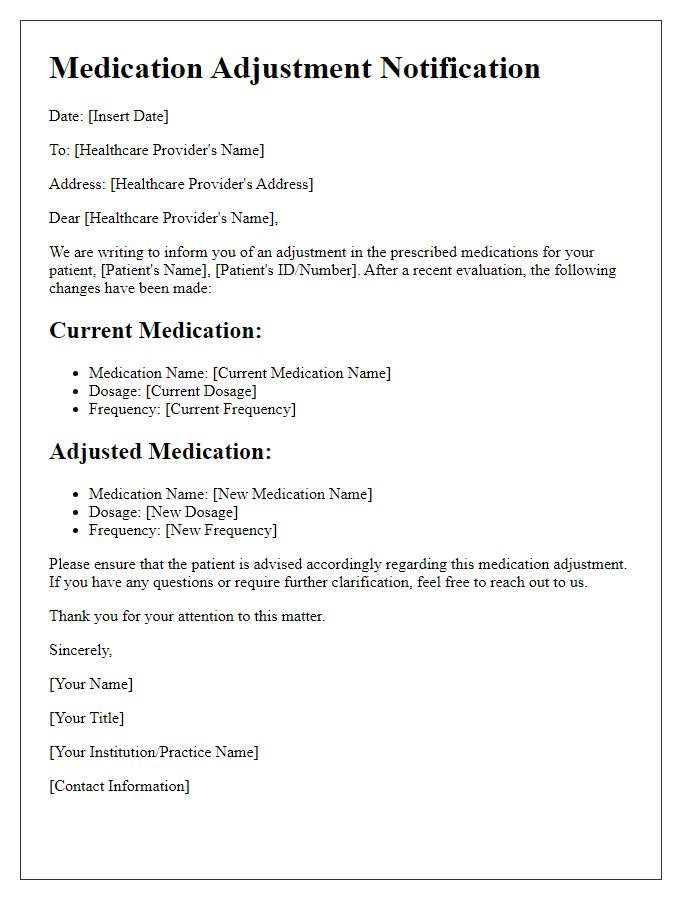
Letter template of changes in patient medication plan for family members.
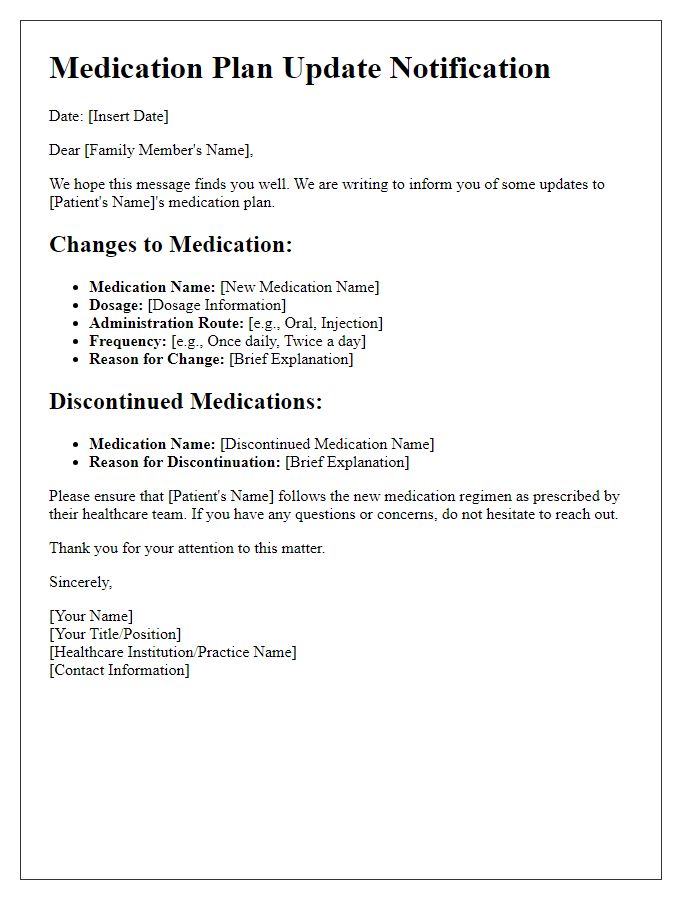
Letter template of modifications in medication therapy for nursing staff.
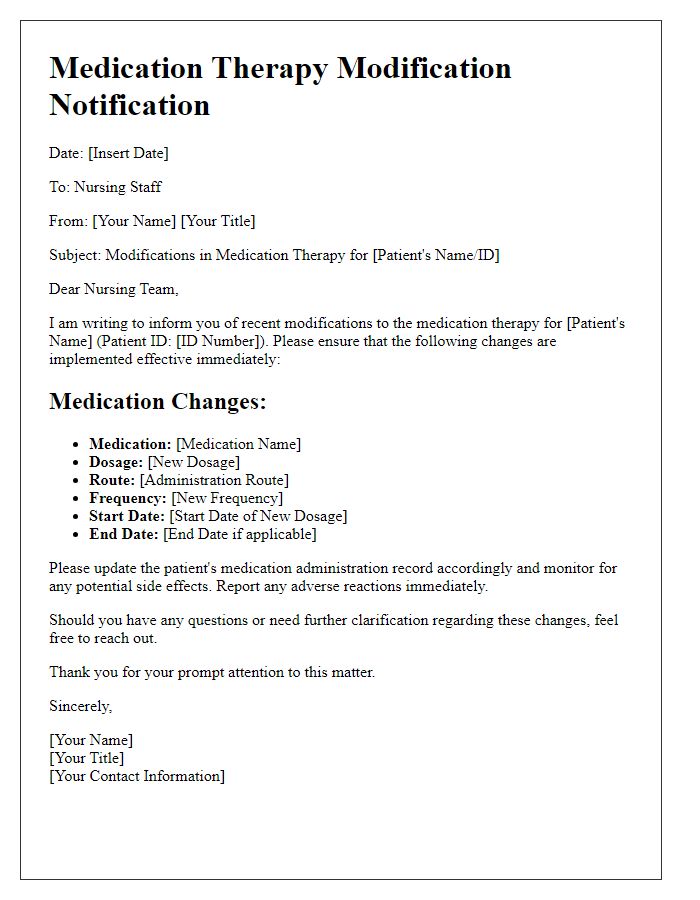
Letter template of revised medication instructions for pharmacy partners.
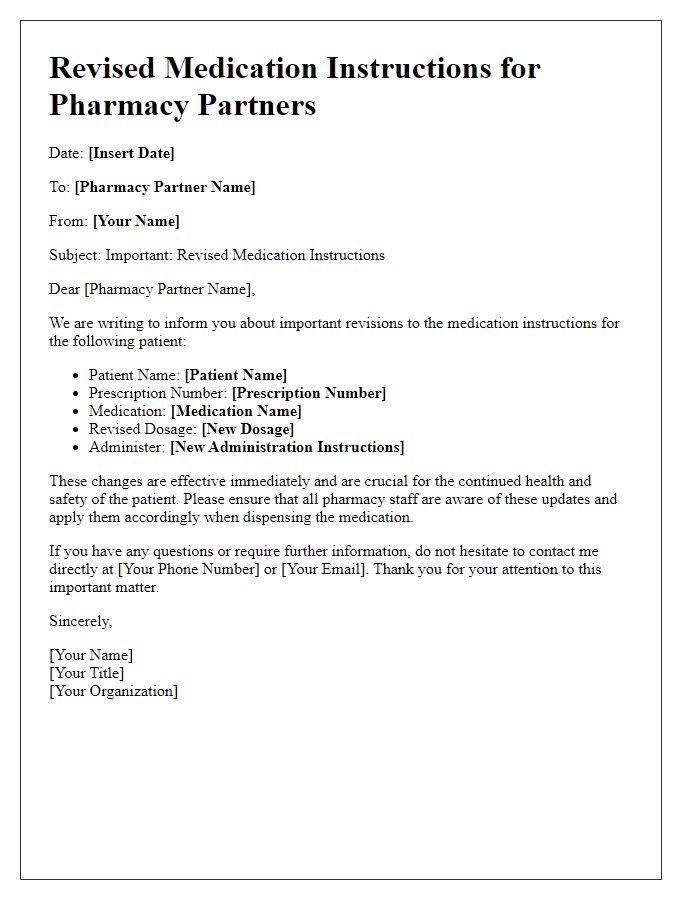
Letter template of new medication guidelines for health insurance companies.
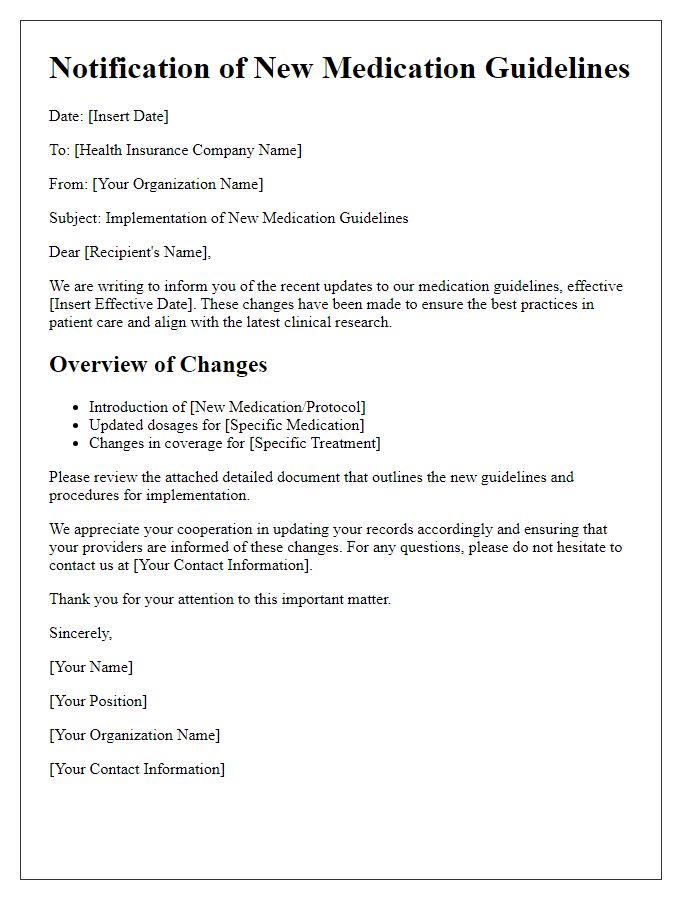
Letter template of medication regimen amendments for patient educational materials.
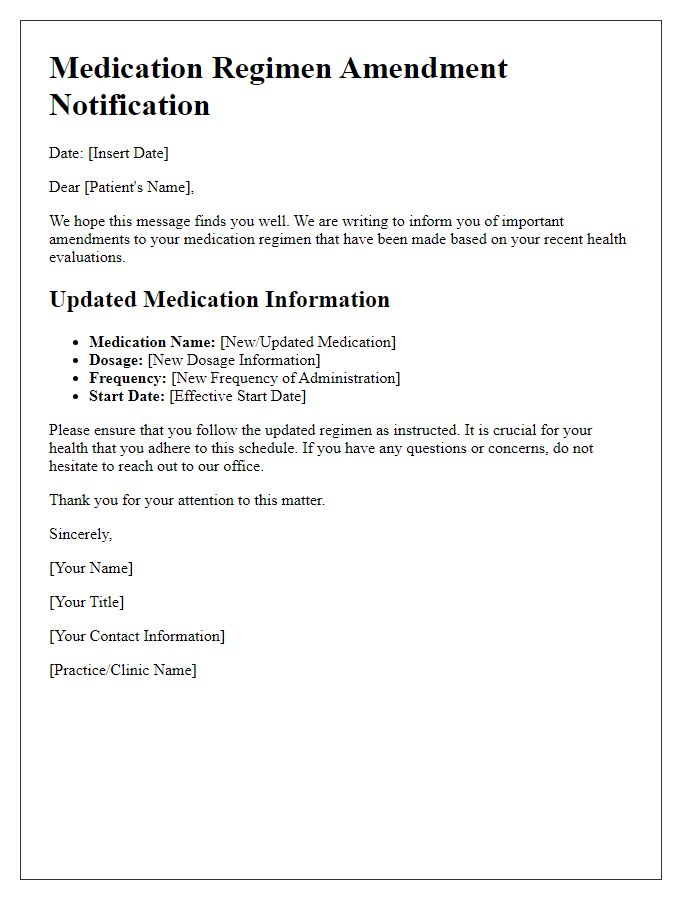

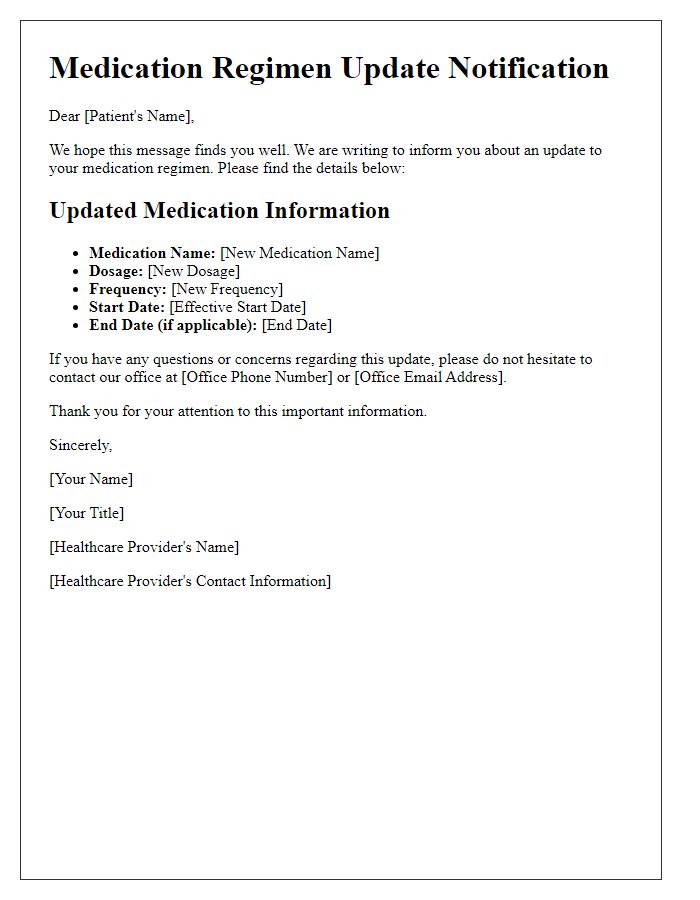
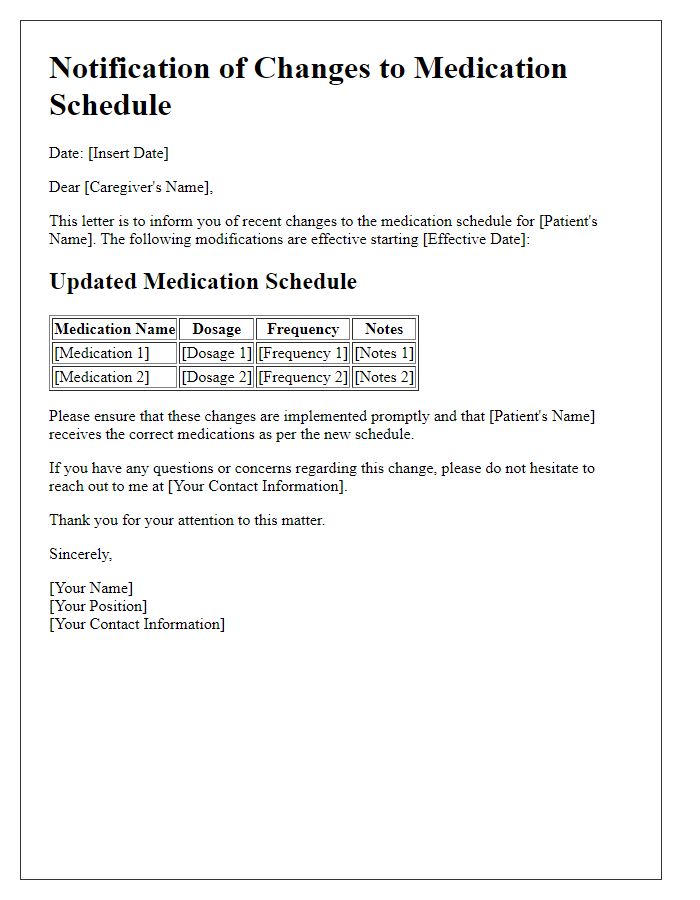
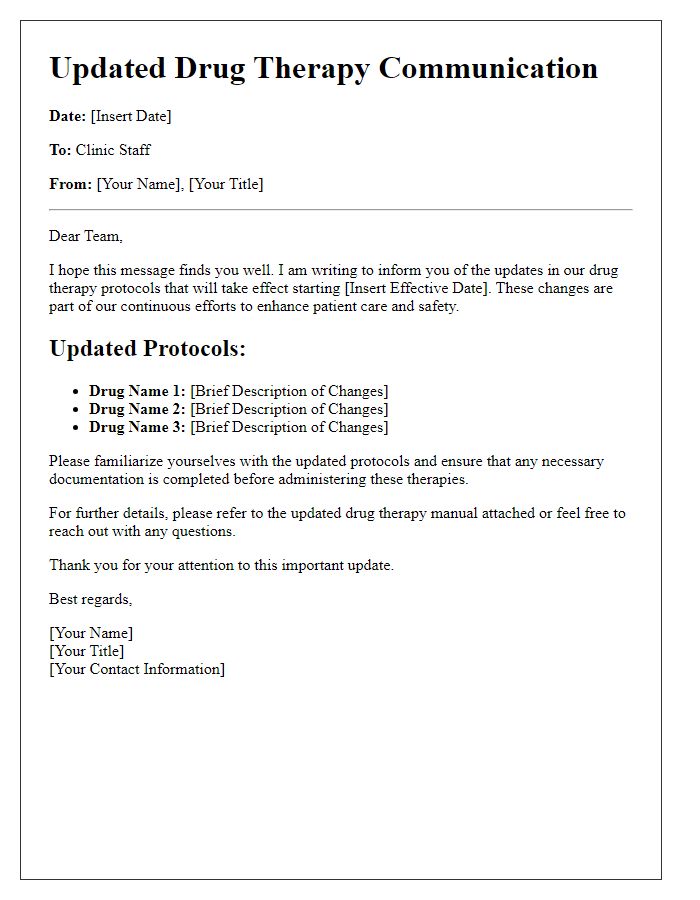
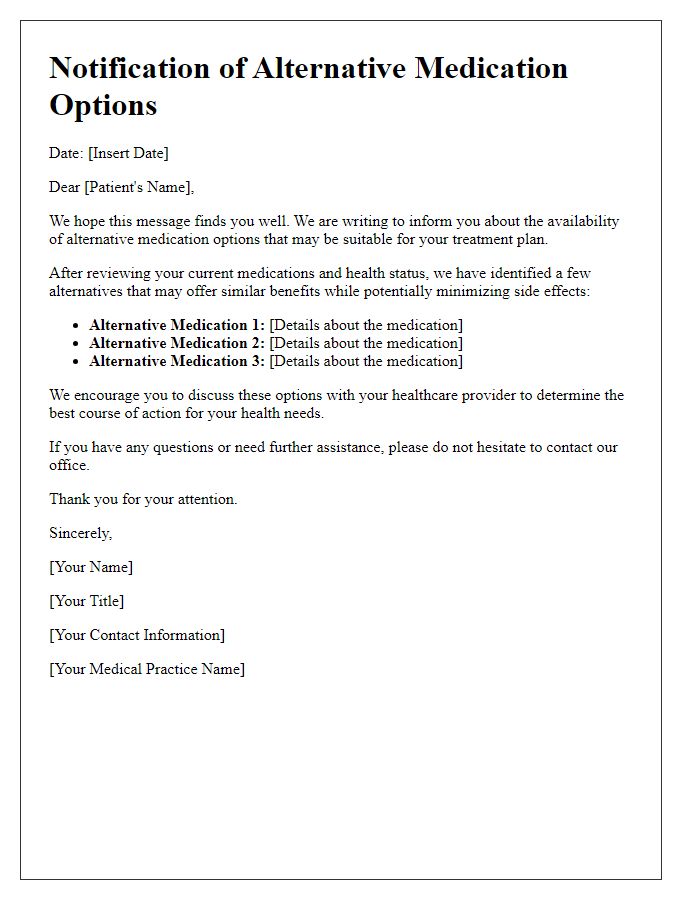


Comments